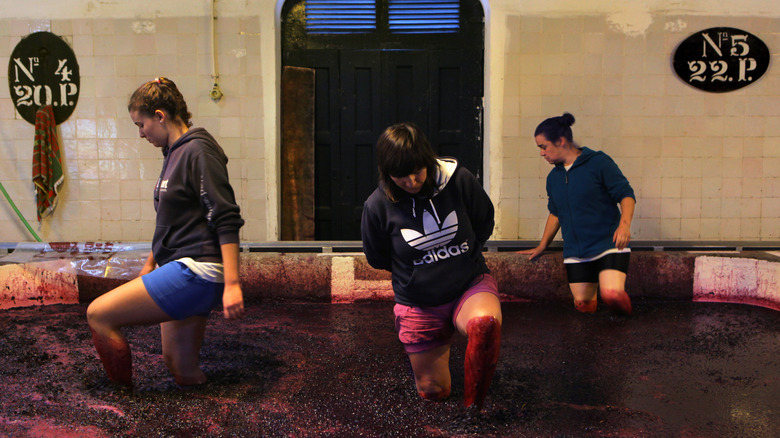The Science Behind Port Wine's Signature Sweetness
Originating from the Douro Valley in Portugal (the least expensive wine country in the world), Port wine is a fortified wine — a sweet delight that warms the soul and brings people together. Whether shared during a cozy nightcap or indulged in after a long day, Port wine is a staple on most drink menus in Portugal and a standout in the world of fine beverages.
But what's with Port wine's signature sweetness? The secret lies in the addition of a clear brandy-like spirit during fermentation used to halt the process. So instead of the grape sugars turning into alcohol, that sweetness is preserved, allowing the winemaker to retain a significant portion of those sugars in the final product.
The result is a rich, decadent wine overflowing with sweet flavors that pair perfectly with various desserts and cheese boards. It also means that the alcohol content is slightly higher than many other wines, as the brandy brings it up to around 20%. But don't let that scare you off; the warming sensation that Port provides is worth every sip. And the key is to do just that — sip it slowly while enjoying a long, leisurely post-meal conversation.
But this beloved wine isn't just about the taste. The history and tradition behind it are just as rich and enticing as each sip. From learning about the complexities of fermentation to the art of aging, there's much to explore and appreciate. So join us on this journey through the science and history of Port wine. Saúde!
The history of Port wine production
From the rolling hills of the Douro Valley to the valleys of France, wine production is an art form. And Port is no different, serving up a lush history and timeless taste. But where did it all begin? Most accounts date the origins of modern-day Port back to the 17th century. However, wine production in Portugal's Douro Valley dates all the way back to the Roman era.
Regardless of the exact dates of its origins, today's Port wine production process combines tradition, science, and artistry. At most quintas (the Portuguese word for "estate"), the grapes are still trodden by foot. Once the grapes have been crushed, the juice is partially fermented and then fortified with brandy, giving it that signature sweetness.
David Guimaraens, Head Winemaker from Taylor's Port, explained the unique fermentation process of Port wine to Insider. "When half of the sugar has been converted to alcohol, we will run off the juice. And we will add a neutral grape spirit, which will kill the yeast," Guimaraens revealed. "And the wine alcohol, the spirit that we use, is there to raise your port to an alcohol level of 20%, where it is stable and has the ability to age."
Similar to champagne, to qualify as Port, the beverage must come from the Douro Valley in Portugal, which has a protected designation of origin, or PDO. This means that Port is subject to strict regulations to ensure that it meets the quality standards of this unique wine.
Discovering the tantalizing taste profiles of Port wine
Port wine is well-known for its signature sweetness, which sets it apart from traditional red wines. As you now know, the natural sugars present in the grapes used to make Port are higher than in regular wine, giving it a luscious and velvety texture on the tongue. There are several different types of Port wine, all with unique taste profiles.
For example, Tawny Port is aged in oak casks for a longer time period, infusing the wine with caramel, nuts, and dried fig flavors. It is also lighter in color and has a more delicate flavor than other types of Port. It is served cool but not chilled, and it's a great option for those who know it'll take a while to finish the whole bottle.
"Tawny's distinct advantage is having lived with oxygen its whole life in a barrel, it remains very tolerant to being open and is long-lived open in the refrigerator," Mark Sayre, General Manager and Beverage Director of Goodnight Hospitality, told Food & Wine.
Ruby Port, while also aged in oak, is much younger and preserves its rich, fruity flavors and vibrant red color. Expect a burst of dark cherry and blackberry flavors, with hints of cinnamon and other warm spices.
There are also a handful of other types of port, but no matter which type of Port you choose, each sip reveals a complex and tantalizing flavor profile, all thanks to the preservation of the grapes' natural sugars.


